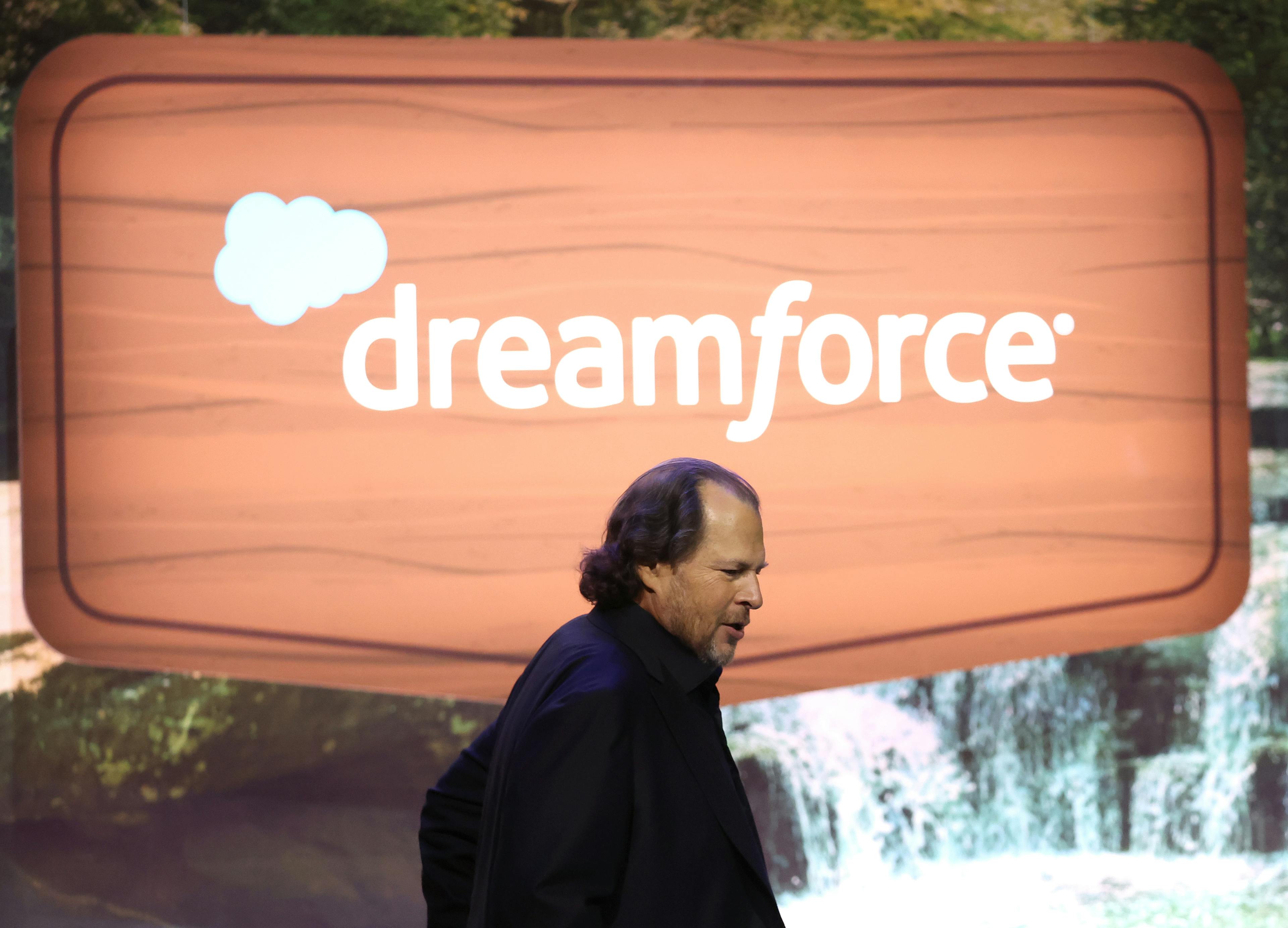Salesforce’s slump shows the market still thinks AI is coming for software. But what if it doesn’t?
There wasn’t much proof of disruption in Salesforce’s numbers. Meanwhile, it’s trading around its lowest price-to-earnings ratio ever.
Yesterday, we mentioned recent chatter suggesting that the next big phase of the moveable market feast that is AI could be centered on the software business.
Well if it is, nobody told Salesforce shareholders.
Shares of the maker of customer relationship management software tumbled Thursday despite the company posting better-than-expected fiscal Q2 earnings that beat on both the top and bottom lines.
A somewhat lackluster forecast for next quarter’s sales was universally blamed for the roughly 5% tumble.
But the broader picture is that the market remains skeptical that dominant players in the highly lucrative “software as a service” (SaaS) business, like Salesforce, can avoid being disrupted by cheaper, AI-native companies. The threat is that such companies can develop software quicker and sell it for less, eating the incumbents’ lunch.
That seems worth considering. But there was scant proof of disruption to be found in Salesforce’s numbers. Sales, order backlogs, and operating margins continue to grow at a solid clip. And while the guidance might have been light compared to Wall Street expectations, it still suggests acceleration out of Salesforce’s recent slow patch.
At the same time, Salesforce spotlighted progress on its own AI offerings, noting that the Q2 annual run rate for its Agentforce and Data Cloud products hit $1.2 billion, up 120% from the previous year.
The stock’s tumble Thursday suggests investors haven’t been won over by such numbers about Salesforce’s next chapter as an agentic AI giant.
Morgan Stanley analysts suggest the company’s detailed presentation at its October Agentforce conference — where it will demo the next generation of the software and offer testimonials from customers about its value — could bolster confidence in the stock.
But in the meantime, Salesforce, down about 27% this year, remains pretty cheap for a large-cap tech name. It’s trading at roughly 20x expected earnings over the next year, near the lowest level in its 20-odd years as a publicly traded company.
“Bottom line, this strong positioning to benefit from the expanded capabilities of GenAI remains unappreciated in a marketplace thinking ‘SaaS is dead,’” Morgan Stanley analysts wrote. “We see a positive risk/reward in [Salesforce] and remain firmly overweight.”
